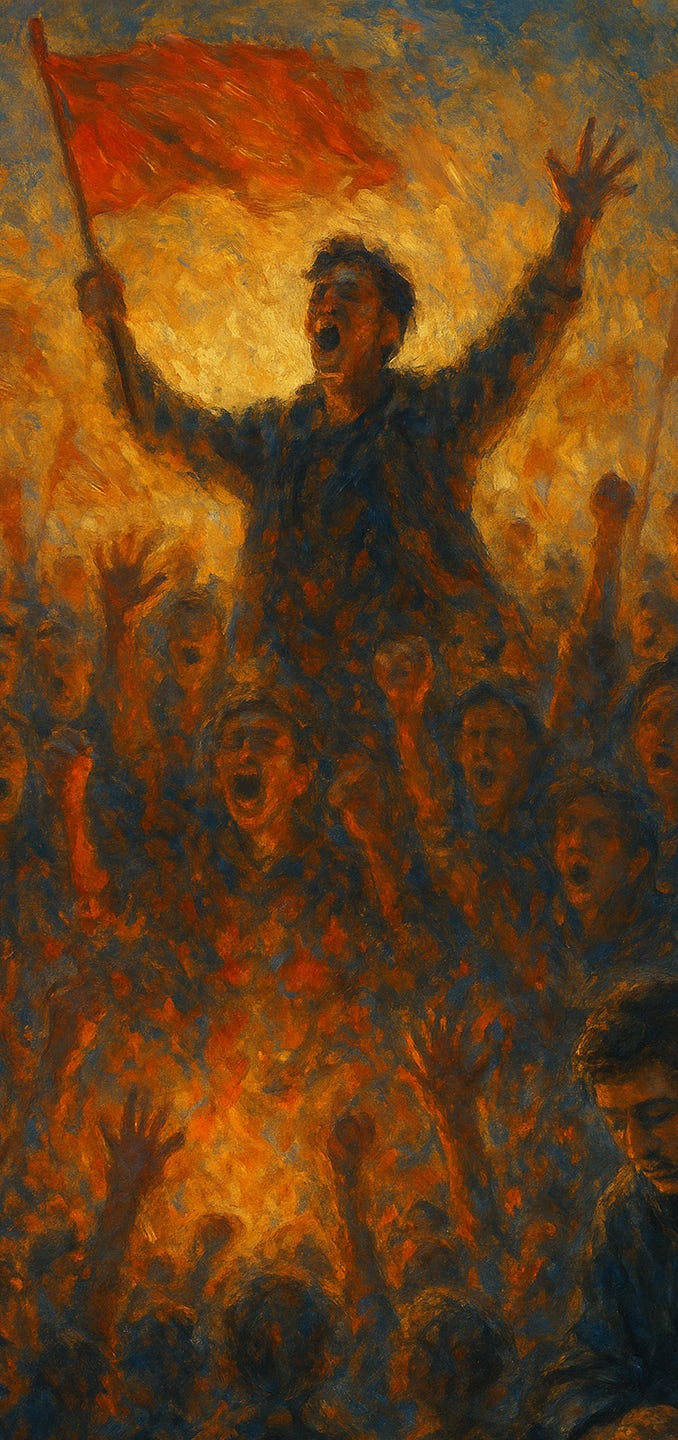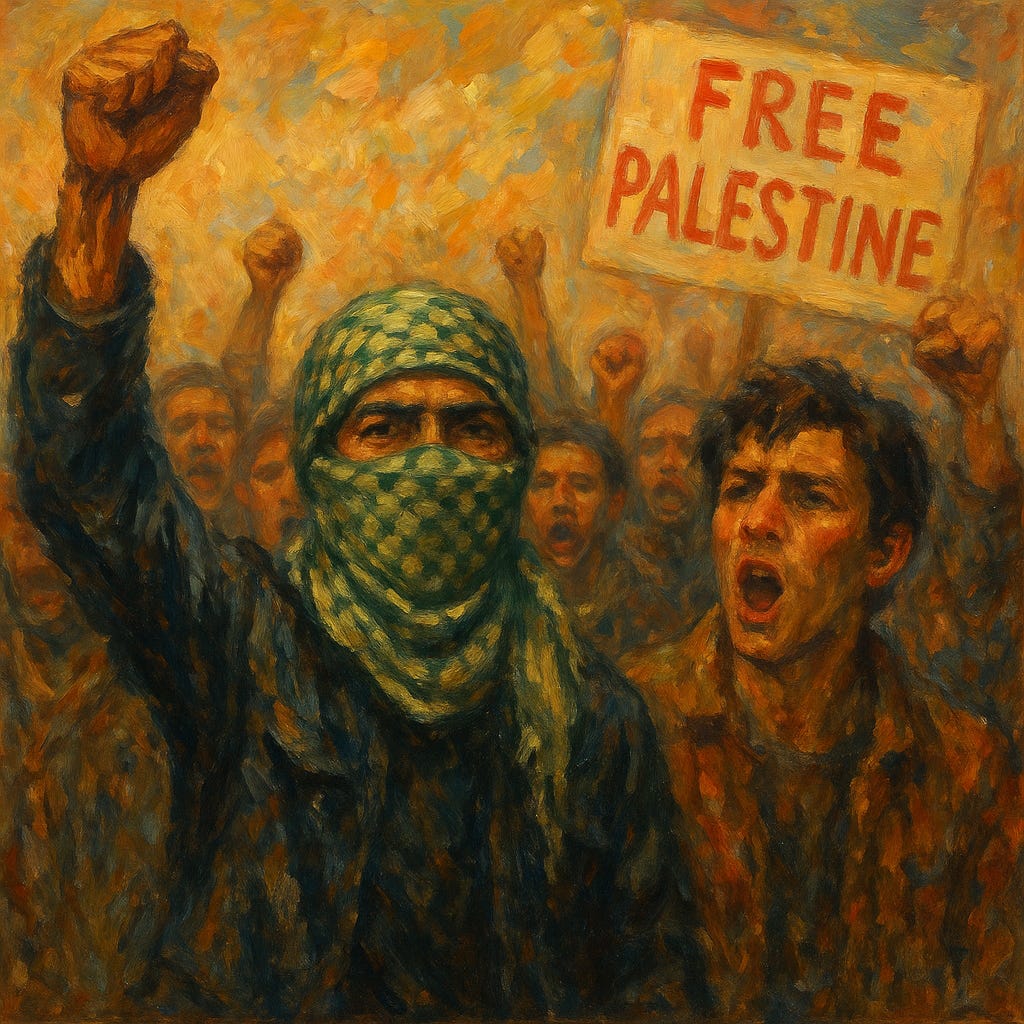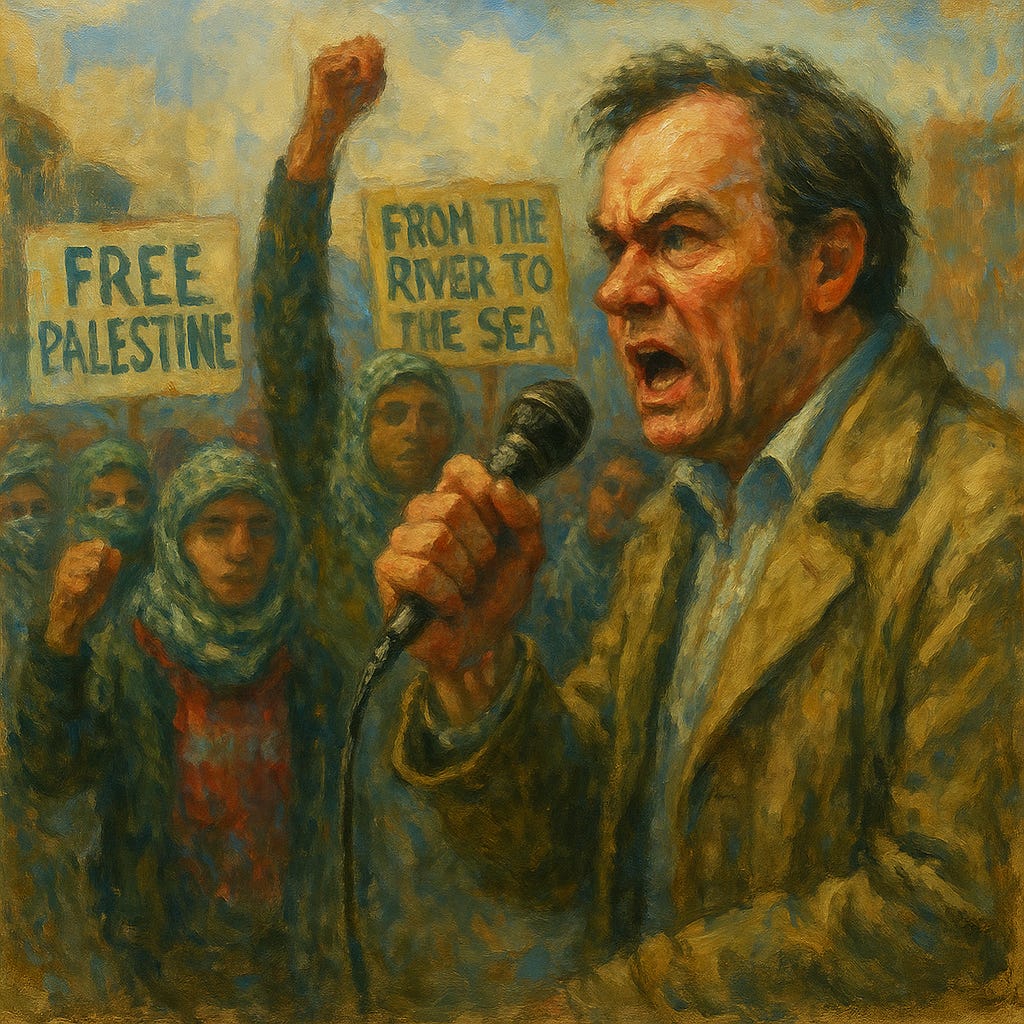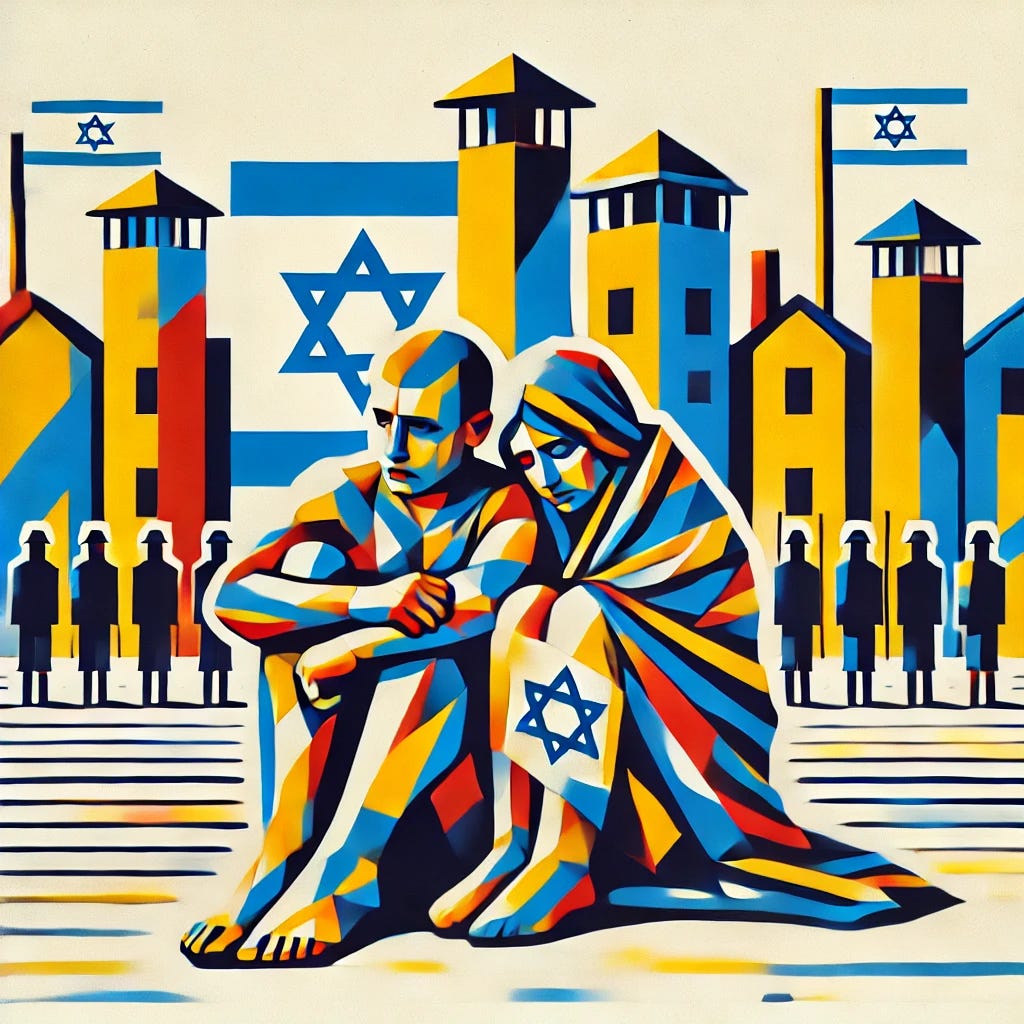To the Chanting Boy Wearing A Keffiyeh
Stop chanting and read this.
If you believe in free speech, here’s the bad news: it isn’t actually free. It costs $5 a month. That’s less than the latte you complain about, less than the Netflix shows you’ll never watch, and far cheaper than your last regrettable bar tab.
For that, you get three essays a week, open comments, and the satisfaction of knowing you’re funding uncensored writing in a world addicted to censorship. Everyone says, “It’s just the price of a cup of coffee.” Fine.
But here’s the pitch: give me your coffee money and I’ll hand you something stronger—essays with bite, arguments with teeth, and the freedom to say what others won’t.
Subscribe today. Because silence is free—and it’s worth exactly what you paid for it.
“Men, it has been well said, think in herds; it will be seen that they go mad in herds, while they only recover their senses slowly, one by one.” — Charles Mackay.
There is something splendid and terrible about crowds. We have put men on the moon and plumbed abysses the whale would envy; we have banished smallpox and made deserts bloom. Yet give a crowd a slogan and it will surrender the small miracles of reason for the cheap ecstasy of unanimity. That is the human comedy and the human crime.
You can see it on a Toronto street on a bitter afternoon: a man with a microphone, a keffiyeh, a righteous phrase looped into a chant — “Intifada! Revolution!” — and a hundred bodies orbiting him like weather vanes. A boy in a Supreme sweatshirt stands in the third row and has, at last, found a tribe. He will no longer be the awkward guest who is never invited to house parties. He will not have to explain himself. He will have the social dividend of belonging. He raises his fist and, for a moment, is whole.
But what does he mean? Intifada — literally, a “shaking off,” an uprising — is a word that bears both the poetry of resistance and the blunt truth of violence. Words are slippery: they dignify deeds, and they disguise them. Ask the dead whether the chant dignifies them. Ask the survivors. Ask those who were not warriors but mothers, fathers, and children. On October 7, 2023, an assault from Gaza left more than a thousand people killed in Israel, with hundreds taken hostage; the day’s carnage was not an abstraction.
“One solution,” the chant goes — a tidy, melodious phrase that sweeps morality into a single syllable. It is a familiar tune in history: tidy solutions have never been humane. The echo of “one solution” is not accidental; it is a rhetorical cousin of the language that has begotten the worst crimes men have committed when they were most certain of themselves. Mackay’s insight is plain and grisly: herd conviction is no proof of rightness, only of volume.
There is a republican virtue in anger — anger that compels scrutiny of injustice — but anger that dresses itself in a uniform and begins to chant is no longer inquiry; it is a profession. It is intoxicating, and intoxication closes the mind. The keffiyeh on the boy’s shoulders is not an argument; it is a costume. The slogan is not a plan; it is a shorthand for identity, in which the words rhyme more than whether they are true.
Worse, the moral geometry of these chants is often inverted. “From the river to the sea” sings like a lyric, but translated into policy, it is a demand for eradication, not reconciliation.
Rhetoric can be poetry, but it can also be a blueprint for dispossession. Rhetoric without the ballast of history and the temper of nuance becomes a wrecking ball.
When a university suspends a professor because the provost prefers the testimony of an angry colleague over the virtues of argument and due process, you see how quickly the machinery of decent institutions can be hijacked by performative righteousness. That is not the same as moral courage. It is cowardice masked in compliance. It is the university behaving as a town square, not as a place of inquiry.
There are, of course, double standards, both grotesque and banal. One expects moral consistency, but what we often get is selective compassion performatively displayed in the streets and absent at the massacre or famine whose victims are inconvenient to the slogan of the hour. Did the boy with the keffiyeh take to the pavement when half a million were being slaughtered in Sudan, or when Uyghurs were interned, or when Syrian towns were shelled into ruins? Absent the hashtag and the vinyl scarf, many of these tragedies generated little noise. The crowd is very modern: it chooses its grief by fashion.
Yet it would be foolish to reduce all protest to the vanity of the anonymous participant. Genuine solidarity exists; so does principled anti-occupation politics. The difference between them and the spectacle is method: the one seeks remedies, institutions, and the hard arithmetic of compromise; the other seeks denouncement, purity, and the exhilaration of exclusion. One repairs; the other robs.
And let us not indulge the cheerfully naive claim that slogans can undo governance or geopolitics. Demanding a nation’s disappearance is not a critique of borders; it is a fantasy of annihilation. Political change requires bargaining, compromise, and — least fashionable of all — acceptance that human beings are complicated collections of loyalties, sins, and small mercies. If you want to end occupation, you must be prepared to replace it with governance, law, security, and economy. If you want liberation, prepare to build a society that can sustain it. Chants do not build states; they burn them.
One thing, however, the crowd does do that is not trivial: it reveals character. It shows which ideas are held for reasons and which are worn like a jersey. It shows who dares to speak when a slogan would earn applause, and who uses outrage as a résumé item. It also reveals the costs of moral abdication: when institutions surrender to the scream, the rule of law and the discipline of fairness bleed.
If you have a son or a daughter, consider where their chants will lead. If your version of liberation celebrates the spectacle of rape, murder, or the humiliation of prisoners, then you have chosen a team that prizes death over life. If your politics does not account for the grieving soldier’s family or for the civilian caught in the wrong place at the wrong time, then you have mistaken moral rhetoric for moral thought.
Mackay’s warning stands: crowds think in herds; they go mad in herds; and they come to their senses one by one. If you care about justice, cultivate the solitary art of conscience. Let public anger be a provocation, not an occupation. Insist on particulars, demand the names of the dead, study the maps, check the history, and refuse to let a slogan do your thinking for you.
There is room on the street for grief, and for fury that seeks remedy. There is no room — none at all — for chants that dissolve human beings into abstractions and then celebrate their dissolution.
If you must wear a keffiyeh, let it be a garment of thought, not a costume of mob belonging. If you raise your fist, let it be to demand something concrete: the protection of innocents, the release of hostages, a ceasefire, humanitarian corridors, and the patient work of law. Otherwise, you are merely part of the herd, and the herd is perilously, predictably, and fatally prone to mistake.
If you found value in this article and wish to support my ongoing work, please consider leaving a tip. Your support helps me continue producing uncensored content on critical issues.







Dear Dr. Finlayson, I already tried once to get your permission to translate another of your articles into Polish but I didn't get any answer. Well, this article is so good, I will try again. If you agree, the article would be published on a website www.listyznaszegosadu.pl (my husband, a retired journalist, and I, a retired translator of popular science books, run it together). We try to fight against irrationalism and as antisemitism/anti-Zionism is an epitome of irrationalism this subject takes a huge part of our website. I would be very grateful for a possibility to show your article to our readers. My email address is: koraszewska1@gmail.com
Excellent piece. If only said Keffiyeh boy and his ilk could read it.